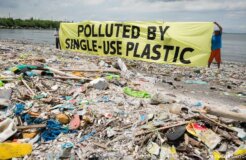Today, Ireland is one of the world's biggest tech hubs, with many tech giants setting up their headquarters in the capital, Dublin. But just a few decades ago, the island was largely made up of largely an agricultural focused economy.
In 1921 Britain divided the island into a predominantly Protestant North and the mainly Catholic South – with both remaining parts of the UK. However, the South very quickly strived for independence while the North remained a part of the UK – leading to decades of violent civil unrest between the supporters of united Ireland, and those fighting for a United Kingdom. A power-sharing agreement came into force in 1999.
With the so-called Brexit referendum in the UK in 2016 and the British government's following attempt to define its future relationship with the EU, the historical conflict became a highly controversial issue.
Ireland has also a significant history of migration, particularly since the 18th century when between 9 and 10 million people born in Ireland have emigrated. This is more than the population of Ireland at its historical peak of 8.5 million in the 1840s. The poorest of them went to Great Britain, especially Liverpool; those who could afford it went farther, including almost 5 million to the United States.
In 1890, 40% of Irish-born people were living abroad. By today, an estimated 80 million people worldwide claimed some Irish descent, which includes more than 36 million Americans who claim Irish as their primary ethnicity.
Today Ireland has become one of the world's fastest-growing liberal democracies, with same-sex marriage voted in through a referendum and an openly gay prime minister, and it recently voted to make abortions legal following a monumental referendum in 2018.

